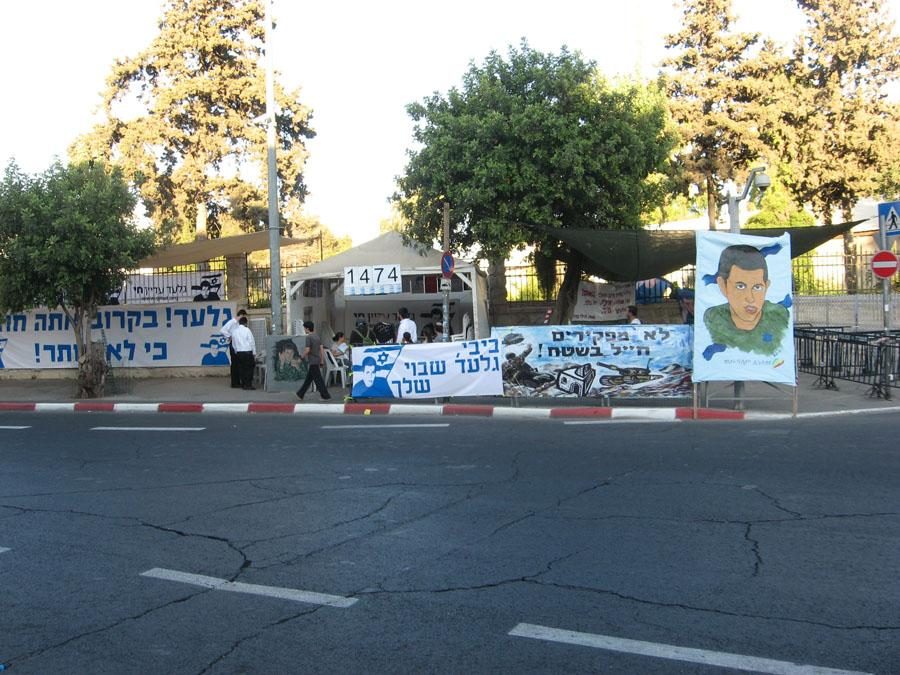Kalil I. Eden, 9th grade
Hamal stuffs the empty space in the cartridge with nails, to inflict as much pain and death as possible, then seals it and lights another cigarette. Whoa, deja vu. Hamal did this last year, but was caught later by the IDF. Unfortunately, Hamal was one of the thousand chosen to be traded for Gilad Shalit’s freedom, coincidently one of the 450 convicted terrorists in the bunch. As far as Hamas is concerned, capturing Israeli soldiers was a great idea; they showed the world that Israel could play at their level and effectively made politics and morality different playing fields forever. And the bombing on the news tonight will demonstrate above all the unreliability of the IDF and the inconsistency of the Israeli government.
On October 1st, captive Gilad Shalit’s image flickered on screens around the world, alive and well. The two minutes and 42 seconds of the tape cost Israel the release of 20 female Palestinian prisoners. Does this mean we are willing to trade 800 prisoners for a feature film starring Gilad Shalit?
IDF Cpl. Gilad Shalit, now 23, has been held captive by Hamas since 2006 after being captured in a cross-border raid while on patrol near Gaza. All efforts to free him have failed so far. According to news reports the price of his release has been set at 1,000 prisoners, 450 of them convicted terrorists. Is trading these prisoners the smart thing to do? Is it the right thing to do?
We traded 20 people, interrupted justice 20 times for a just a video tape. Are we to interrupt justice 1,000 times for one man? Perhaps Gilad or a member of his family would support such an uneven trade, but theirs is not an objective perspective. And furthermore, if I was Gilad Shalit, I would not want my freedom traded for murderers and terrorists.
There are really two ways to view prisoner trading: — idealistically, living our principles and strongly considering the message our actions send, or pragmatically, focusing solely on freeing Gilad Shalit, setting aside whatever ideals or principles must be sacrificed to achieve this. In terms of pragmatism, trading prisoners is optimal, but in terms of principle, it is immoral. However, these approaches are not equal.
Gilad Shalit’s life is just as important as that of any other Israeli soldier, but unfortunately not more so than the morality of an entire country (or several countries for that matter.) If we are so quick to trade prisoners, we are saying that we are willing to negotiate with groups like Hamas, encouraging the capture of more Israeli soldiers. So what happens when Hamas captures another soldier? And another?
And why wouldn’t they? Work that pays well is generally work that is repeated.
However, I am not implying that we refuse any offers altogether. If Hamas offered one dollar for Gilad’s freedom I am not suggesting Israel refuse simply to prove a point. But 1,000 people almost half of whom are convicted terrorists? This is just too low a blow to our morality. I suggest we don’t play ball with Hamas. We will lose.

